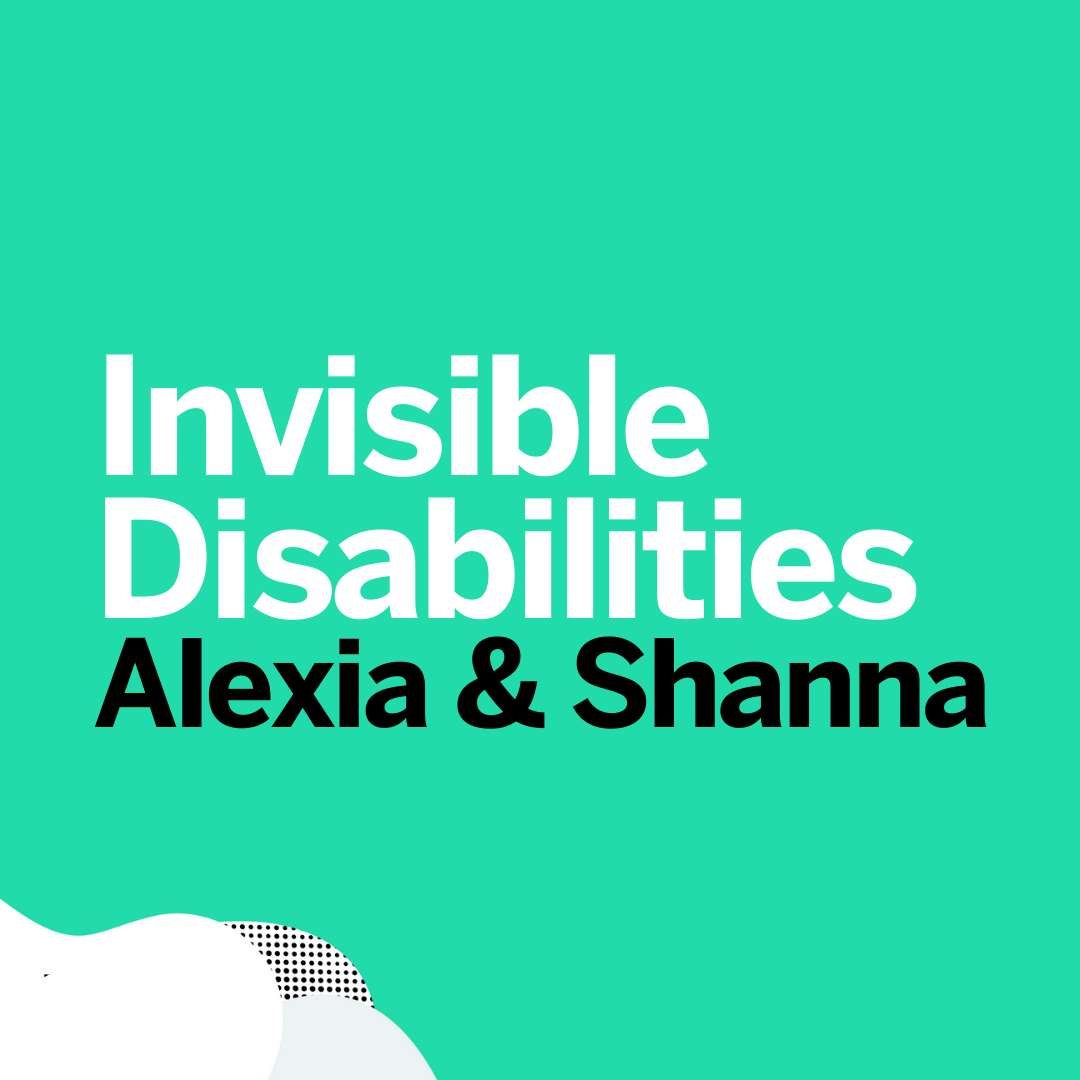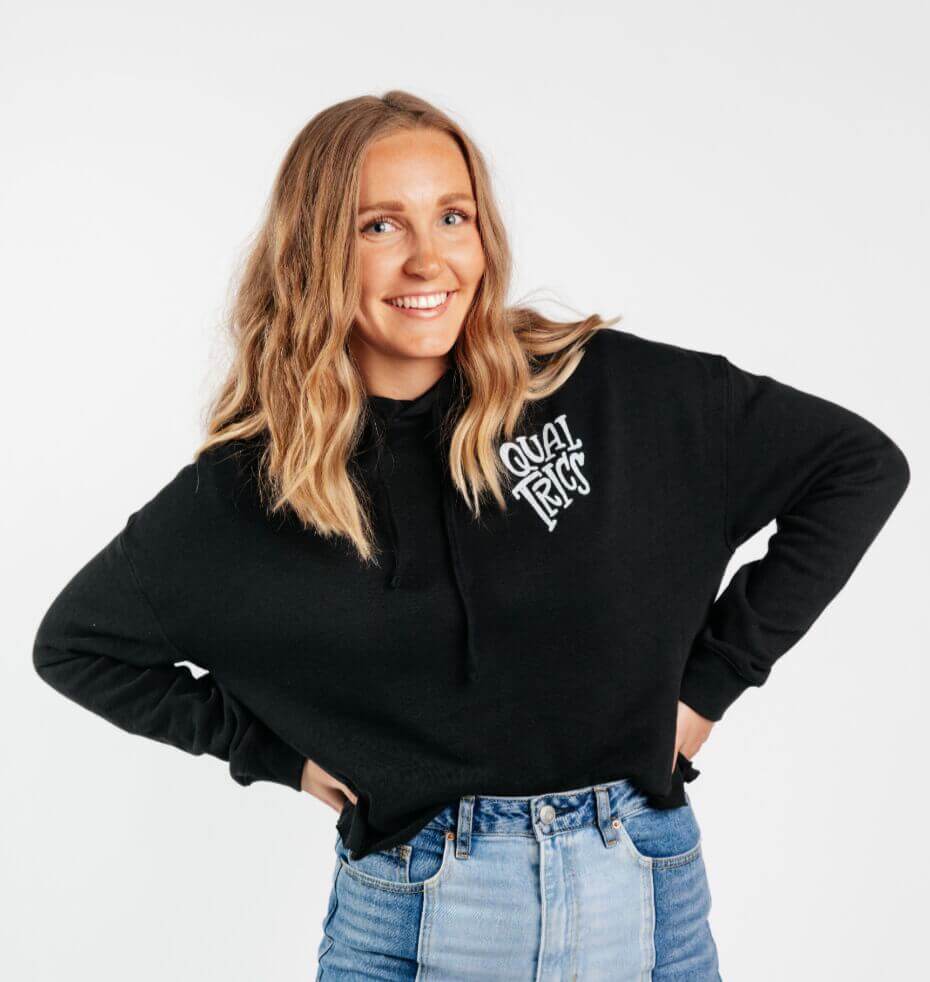
Alexia
Can you talk about your experience as a person with a disability?
In my early childhood, I showed numerous signs of delayed learning, but since my performance remained on-par with my peers, my teachers dismissed my parents’ concerns. As I got older and gained the means to do my own research, it became apparent that self-advocacy was necessary to receive a diagnosis and the support I had gone without.
I was diagnosed with Dyslexia and Attention Deficit Disorder at age 17 — this was the final puzzle piece to understanding myself and the struggles I had encountered. It wasn’t until accessibility became personal to me that I understood the importance of advocating for an accessible world for all.
How has your experience been in the workplace, in general as well as at Qualtrics?
In college, I received accommodations that I knew wouldn’t directly translate to a professional setting. Because of this, I had always feared that I wouldn’t have the means to perform well in my career. Upon joining Qualtrics, I quickly realized that I had no reason to worry – I have felt nothing but support from my manager, team, and greater Qualtrics community. Qualtrics’ culture empowers me to continuously learn and grow to become a better advocate for myself and others.
What would you like people to understand when it comes to people who have disabilities? Is there anything they can do to better support people around them who have disabilities?
Three things come to mind that I’d like others to know:
- Many disabilities are invisible
- Individuals with disabilities are just as capable as those without
- Everyone can reduce disability hardships by exemplifying kindness and empathy
Since many disabilities are not visible, being inclusive can be complex and confusing. We can all do our part to foster accessibility by leading with empathy and being conscious of how our actions might impact individuals with disabilities (visible or invisible).
If your purse is blocking a walkway, might that prevent a wheelchair from traveling through that area? If you are clicking your pen, might that trigger someone with a sensory processing disorder? If you know someone has a disability, ask how you can best support them. Small actions that show support can go a long way.
How has being a part of Q&Able affected your personal and work life?
Q&Able is a community where I feel accepted and empowered; it has provided me with a voice I never knew I had. Through my involvement, I have learned about disability advocacy and accessibility in the workplace. I have a greater understanding of myself and other individuals with disabilities which has improved my confidence and empathy within and outside of work. I am thankful for the barriers Q&Able has broken and I applaud each and every individual who works to make Qualtrics a more inclusive and accessible place.
Shanna
Can you talk about your experience as a person with a disability?
In 2016 my life was turned upside down when I sustained a traumatic brain injury during an ice hockey game. The injury left me unsure of my surroundings, who I was, and relearning the most basic of functions such as tying my shoes. At the time I was teaching high school math, and ultimately resigned due to not being able to fulfill my job responsibilities (math didn’t come back for over a year). Through countless hours and frustration of occupational and physical therapy I recovered much of what I had lost, but I ultimately would never be the same human.
How has your experience been in the workplace, in general as well as at Qualtrics?
Qualtrics has been incredible, honestly. While I have only been here a handful of months, I have felt nothing but welcome. As a human who has a significant disability and is queer, this is a feeling that I have rarely felt in the workplace truthfully. The ability to hop directly into various employee resource groups, such as Qualtrics Pride and Q&Able, was not only great but gave me a sense of community right from the start of my time at Qualtrics and I haven’t looked back.
What would you like people to understand when it comes to people who have disabilities? Is there anything they can do to better support people around them who have disabilities?
Not all disabilities look alike and many are not visible. As a human with one of those ‘invisible disabilities’ it can make conversations a little awkward for me and those in them — as plainly stated ‘I look normal’ as many have shared previously. My family and friends struggled throughout the early stages of my recovery as I appeared and looked like the same person they knew and loved, but I was very much different. Truthfully, support is the one thing that goes farther than anything. That support can look and feel different depending on the scenario, sometimes it’s an ear to listen, others it’s showing up with pizza to check on a friend/family member, and other times it’s having a hard conversation to suggest that maybe your loved one would benefit from talking to someone who understands more of what they’re going through, such as a mental health professional. We all need help at various points in our lives and the more we normalize support in all of its types, the more folks will feel comfortable asking for it.
How has being a part of Q&Able affected your personal and work life?
While I knew from my recruiting process that Qualtrics valued me, not simply as an employee but as a human, diving into the Q&Able community during onboarding has been incredible. The folks in the group have intelligent discussions about news, lend support to one another, share encouraging messages, and are simply there as a community for those who want to partake. As someone who’s never been in an employee resource group before (that’s a story for another day) I was naturally a bit nervous, and I can’t imagine not having jumped into this incredibly kind, empathetic, beautiful community upon joining Qualtrics. Shout out to y’all who came before me and paved the way for folks like me, and to leadership for seeing the value add in employee resource groups.

